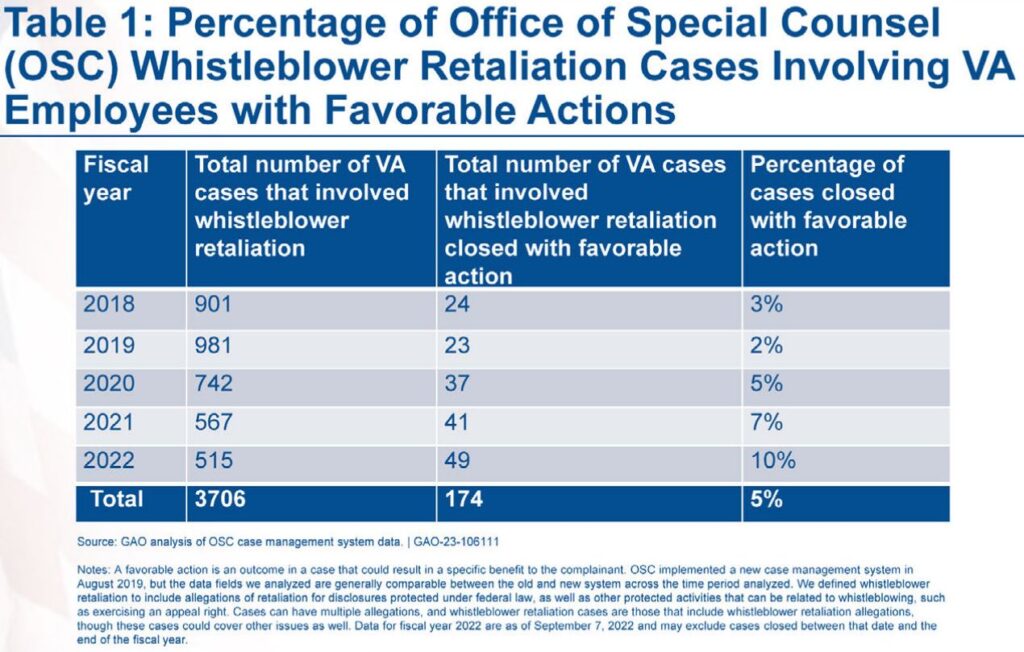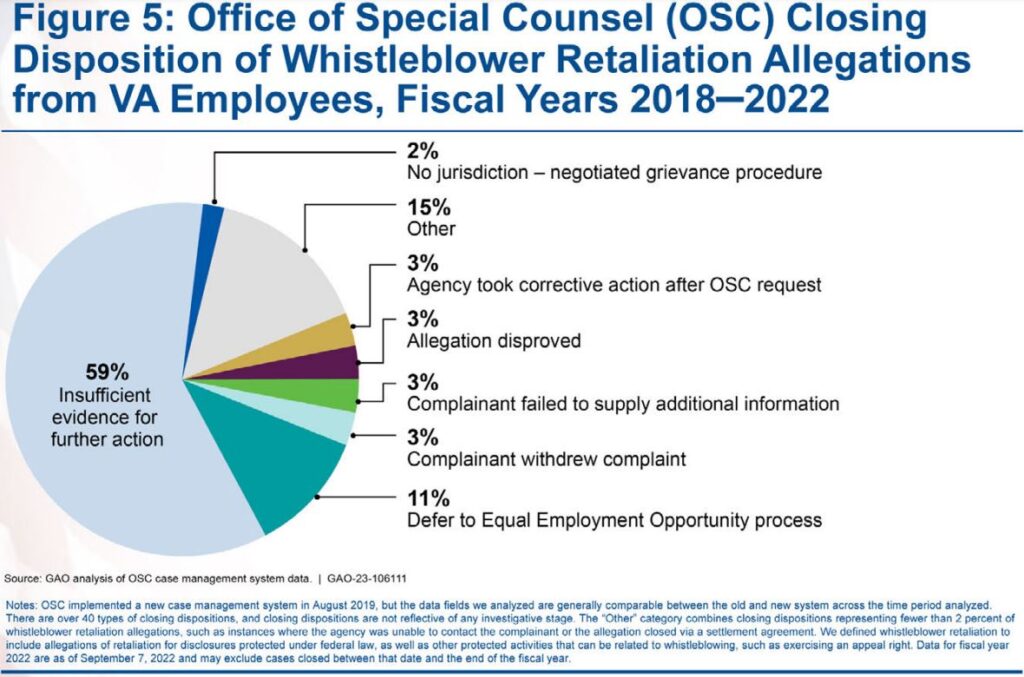GAO Suggested Problem Is Actually Increasing
WASHINGTON, DC — Despite strong messaging over the last few years that VA would protect employees who come forward about wrongdoing in the workplace, the percentage of whistleblowers who experience retaliation from co-workers is growing. And, while the overall numbers are improving, very few cases are resolved to the satisfaction of the whistleblower.
A Government Accountability Office (GAO) report released last month found that 69% of VA whistleblower cases handled by the Office of Special Counsel (OSC) between 2018 and 2022 included retaliation. That number has steadily increased over that five-year period, from 64% in 2018 to 77% in 2022.
This increase in retaliation coincides with an increase in attention to that same retaliation. In 2017, VA established the Office of Whistleblower Protection (OAWP), which was loosely designed to help investigate senior executives and protect whistleblowers from reprisal. The office almost immediately came under scrutiny by Congress and agency watchdogs.
A 2019 VA Office of the Inspector General report found that the OAWP had mishandled numerous investigations, shielded some senior VA officials from accusations of misconduct, and was a source of intimidation against possible whistleblowers itself. Over the next several years, the House VA Committee would hold a series of hearings to focus not only on OAWP’s failures but on the failure by VA to protect whistleblowers, in general.
Egregious Examples
Those hearings gave a national platform to some of the more egregious examples of VA failing to protect its employees. MInu Aghelvi, PhD, a Baltimore VA psychologist asked by her supervisors to manipulate the facility’s wait-list numbers, was told she was being fired the day before she was set to testify before Congress.
Katherine Mitchell, MD, one of the employees at the Phoenix VA who blew the whistle on the extensive wait-list manipulation at that facility in 2014—a landmark case that still reverberates through VA today—was the victim of retaliation by VA supervisors for years afterward.
According to GAO, this kind of retaliation for coming forward has only gotten worse in recent years, not only in VA but the federal government as a whole.
Whistleblowers who experience retaliation also can expect a longer resolution process, the report found. Between 2018 and 2022, allegations involving retaliation took OSC a median of 94 days to close, compared to 83 days for VA whistleblower cases as a whole.
However, whistleblowers looking for a case to end in their favor can expect a much longer wait. Whistleblower retaliation cases with favorable actions took an average of 391 days to close. And those only accounted for a small, though growing, percentage.
In 2018, only 3% of cases ended with favorable actions. In 2022, that rose to 10%.
While the GAO report focused mainly on the raw numbers, it also noted that the rules governing the settlement process for whistleblower retaliation claims are vague, which may account for why less than 1% of claims were closed due to a settlement agreement.
Settlement agreements can be initiated at any point in the process and could resolve employee complaints without litigation. During the settlement, VA will assign someone from the office the complaint concerns, who will be advised by counsel from the Office of General Counsel. The VA employee will have to provide their own attorney or represent themselves.
Any monetary settlement over $5,000 has to be signed off on by a senior VA official. Beyond that, there are few rules governing such settlements, GAO found.
“There are no VA guidance documents, such as handbooks, that outline the settlement negotiation process, settlement amounts or enforcement of agreements that are specific to whistleblower retaliation claims,” the GAO report states. “There is no VA guidance outlining the roles of various parties, including on legal representation, in the whistleblower retaliation settlement agreement process.”
It was only in 2022, in response to congressional inquiries, that OAWP was given the task of tracking executed settlement agreements and information on retaliation settlements as a whole.



